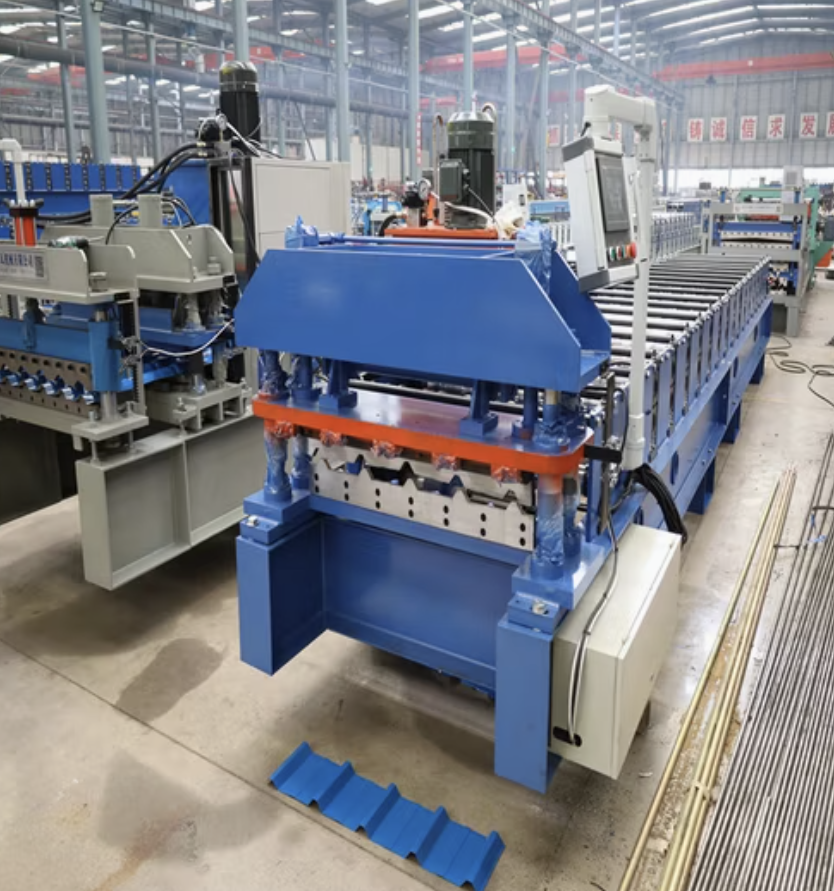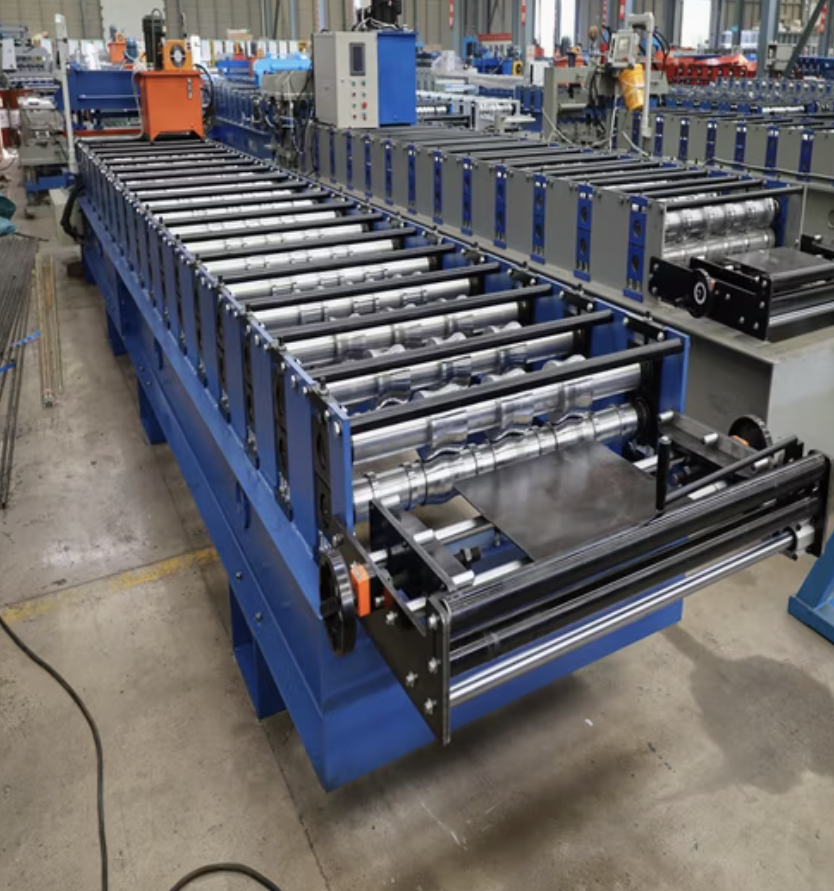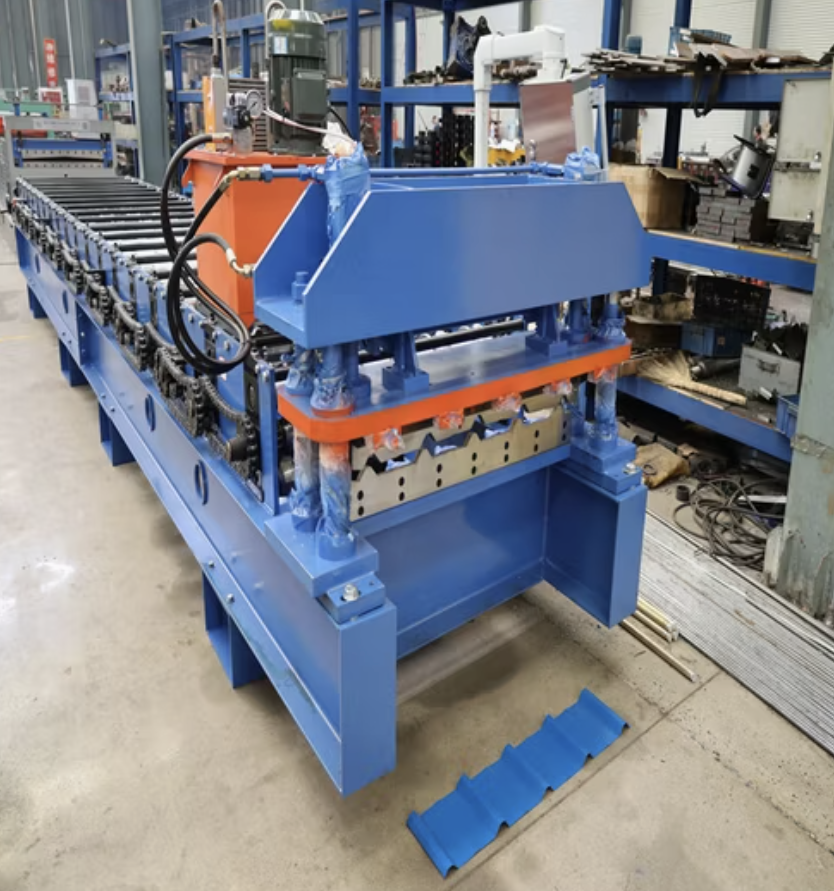To express an interest in this machine please submit the form below.

Not Sure What Machine You Need?
Select Your Profile, We'll Match It
Choose your desired profile drawing, and let Machine Matcher connect you with the best roll forming machine tailored to your needs.
Browse Profiles



A roofing sheet roll forming machine is a highly specialized equipment designed to produce roofing sheets of various profiles, sizes, and thicknesses. These machines are widely used in the construction industry for manufacturing metal roofing sheets, which are integral to residential, commercial, and industrial buildings. They are prized for their precision, efficiency, and ability to create customized roofing sheet designs.
The roofing sheet roll forming machine transforms metal coils (steel, aluminum, etc.) into finished roofing sheet profiles through a continuous bending operation. The process involves feeding the metal sheet through a series of rollers, each of which gradually shapes the sheet into the desired profile. These machines come with advanced automation and customization features, making them versatile for different roofing profiles such as trapezoidal, corrugated, or tile-shaped sheets.
Key components of the machine include:
| Feature | Details |
|---|---|
| Material Thickness | 0.3mm to 1.0mm |
| Material Types | Galvanized Steel, Aluminum, PPGI, GI |
| Roller Material | High-grade steel (45# steel, chrome coated) |
| Number of Rollers | 12–20 stations (varies by profile) |
| Machine Speed | 10–15 meters/minute (standard); customizable |
| Cutting System | Hydraulic with hardened steel blades |
| Control System | PLC with HMI (Human Machine Interface) |
| Power Requirements | 380V/50Hz/3Phase (customizable) |
| Machine Dimensions | 7m–10m (length) x 1.2m (width) x 1.5m (height) |
| Weight | 4–6 tons (depends on configuration) |
| Production Capacity | Up to 500 sheets per 8-hour shift |
| Safety Features | Emergency stop, safety guards |
Q1: What materials can be used in a roofing sheet roll forming machine?
A1: The machine supports materials like galvanized steel, aluminum, pre-painted galvanized iron (PPGI), and color-coated steel.
Q2: How does the hydraulic cutting system work?
A2: The hydraulic cutting system uses a blade made of hardened steel, which cuts the sheet after forming. It operates under pressure to ensure clean and precise cuts.
Q3: Can the machine be customized for specific profiles?
A3: Yes, the machine can be customized to produce various roofing profiles, including trapezoidal, corrugated, and tile-shaped sheets.
Q4: What is the power requirement for operating the machine?
A4: The standard power requirement is 380V/50Hz/3Phase, but this can be customized to suit local power supply conditions.
Q5: How fast can the machine produce roofing sheets?
A5: Standard machines produce at a speed of 10–15 meters per minute. High-speed configurations can achieve faster outputs.
Q6: What is the maintenance requirement for the machine?
A6: Regular maintenance involves:
Q7: Are these machines suitable for small businesses?
A7: Yes, there are compact and cost-effective versions designed for small-scale operations, with a lower initial investment.
Copyright 2026 © Machine Matcher.